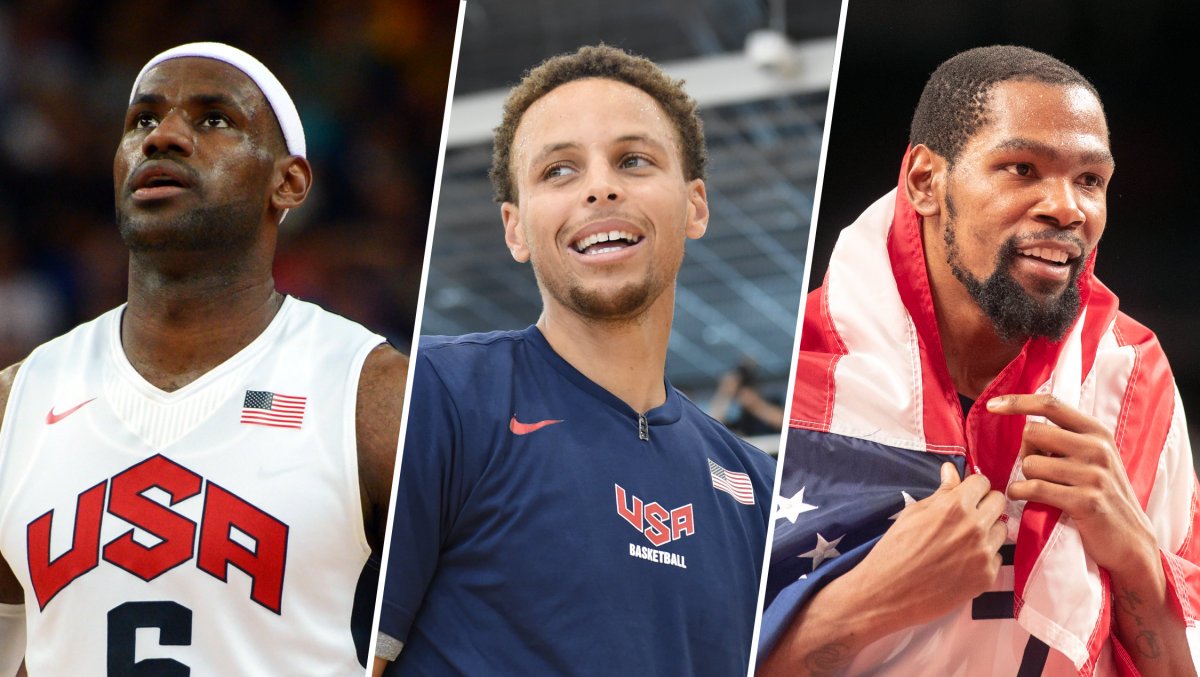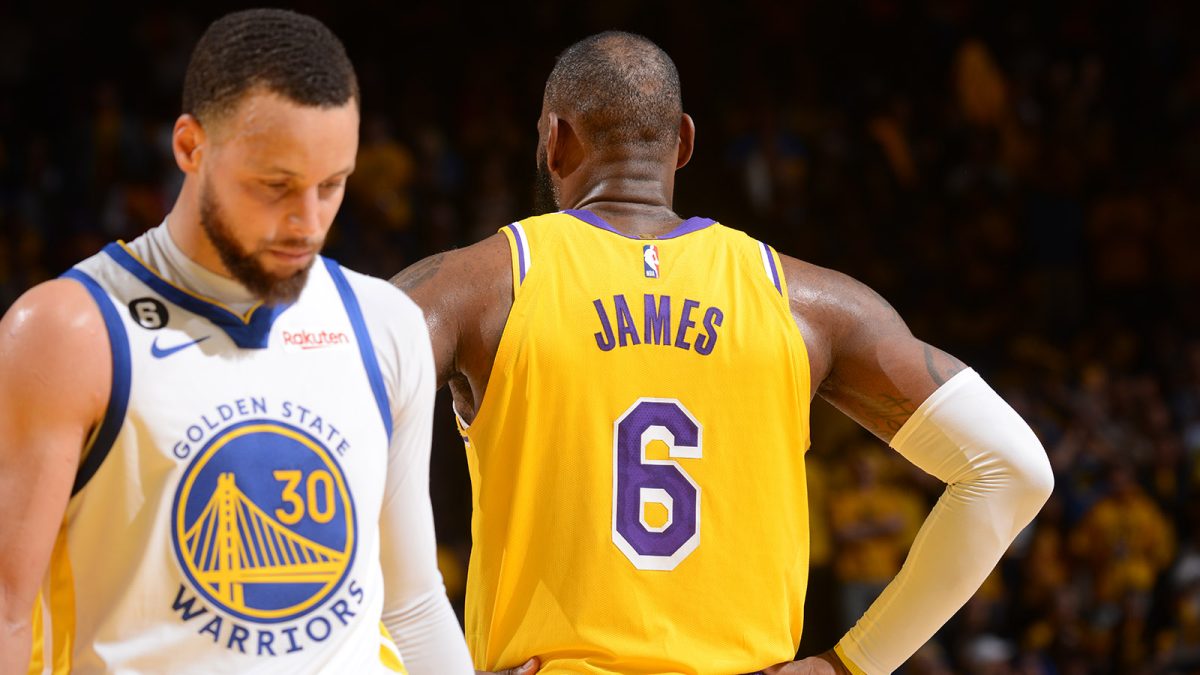SAN FRANCISCO – The laconic Klay Thompson is gone, replaced by New Klay, who is stringing together sentence after sentence, making point after illuminating point, and the subject is neither Warriors basketball nor his beloved bulldog Rocco.
Klay has welcomed a new passion, an awakening that adds a new and earnest dimension to what many observers assumed was a lifestyle dedicated to simplicity.
With two serious injuries costing him consecutive seasons, he has found time for reflection and contemplation. He sees what he once missed, feels what he once did not. The racial, ethnic and economic inequalities of society that continue to be a stain on humanity have gotten his attention.
Stay in the game with the latest updates on your beloved Bay Area and California sports teams! Sign up here for our All Access Daily newsletter.
“I learned that the cards are stacked against a lot of people,” Thompson began. “I was the son of an NBA player (Mychal Thompson). So, for a lot of my life, I was able to operate in spaces with a lot of white people, a lot of people who come from great families to who go to college, who are lawyers, doctors.
“But then you come to the NBA and you learn from your teammates and you learn from players who come from inner-city or the favelas of Brazil, and they have worked so hard to elevate their lifestyle. But it's hard because you have so much family and friends who you want to have that same American experience. Sometimes the cards are just stacked against you, whether it's the neighborhood you grow up in, the school system you're in. It's hard just to obtain assurance of your next meal.”
Laconic Klay has said fewer words while answering nine questions in a postgame interview. New Klay, 31 years old, mind fully opened, has barely cleared his throat.
“And 2020 really taught me that we still have such a long way to go, especially in this country,” he said. “You know, for people to have the same opportunity I had as a kid. I had everything handed to me. I had gym access. I had great schooling. And I want every child, no matter what color you are, to have that opportunity, and it might seem like it's impossible but it's not, and I think you start within your community first. “
Golden State Warriors
Said his longtime backcourt partner Stephen Curry: “I love that Klay is saying that.”
Deal with it, people. The days of Klay slipping out the back door, avoiding the inconvenience of reporters, appear to have perished, a casualty of witnessing two years of visual and emotional trauma on the streets of America.
Don’t get it twisted. Thompson still loves the game and yearns for the day he can safely return to the Warriors lineup, which he hopes will be sometime in December.
The hope is that he’ll be the same ol’ Klay, firing in jump shots and playing tight defense, lifting the Warriors to heights they haven’t experienced since he was struck down by a torn ACL in the 2019 NBA Finals.
Off the court, he vows to be New Klay.
“I've learned as professional athletes and NBA players, we have a platform,” he said. “It's all right to do what we want with that platform, but let's pay more attention to social-justice issues or promote your own business or a small business or the community.
“And I've learned that it's a very special opportunity to have these types of platforms. World leaders sometimes don't have as big a platform we can, and I think it's great we voice not only our frustrations, but we empower communities that may be marginalized.”
When a Black couple that owns a business in Marin County was detained 13 months ago inside their store in a perceived case of racial profiling, Thompson took to Instagram to express his irritation, writing in part, “Tiburon PD, wtf? This is how y’all treat hard-working, self-made business owners? Wait, no. Just the African ones ... Black people always have to prove their innocence, no matter how ‘successful’ they are. This s--ts really exhausting.”
Laconic Klay, living and breathing hoops and hanging with his canine best friend, seemingly carefree, might not have noticed such a local news event. Might have been above it all.
New Klay is engaged.
“Being at a private school a lot, you know, sometimes there's only a few kids of color,” he said. “So, you would hear ignorant things. But it didn't affect me as much as it does now in adulthood, because I was a child. I just let it roll off my back whether it was hearing the n-word or racial epithets about marginalized groups. You just learn that's ignorance and all you can do is check people for it, and I learned in adulthood how deep words really cut.
“You remember those traumas as a kid, and I didn't get much at all, but so many of my friends in the NBA have so many stories about being stereotyped, whether it's being pulled over for being Black or checked at the shopping mall or buying stuff and not thinking you could afford it.
“Stuff like that just opened my mind to try to be more compassionate to people who have had to deal with that for generations. I think 2020 really showed us that the world needs more love, and just to try to hear people's story because you don't want to be judgmental of people who have gone through so much.”
RELATED: How Wiseman and Klay bonded while out with injuries
It was 11 months after Thompson’s knee injury that George Floyd died a videotaped death under the unforgiving knee of a Minneapolis police officer. Americans of all stripes took note, as did people around the globe.
The summer of 2020 was a time of naked conflict, with one side bent on maintaining the status quo while another side fashioned a movement urging change. Klay chose the latter.
The August 2019 death of Elijah McClain at the hands of police in Aurora, Colo., who initially tried to cover up the matter, sent Klay to social media. He noticed that the same department arrested James Holmes, the only suspect in 12 deaths at a movie theater “without a scratch on his body.” Klay was among the voices demanding justice.
The case was reopened. A grand jury this month returned a 32-count indictment, with three officers and two paramedics facing charges in the death of the unarmed Black man
It was in the days after Floyd’s death that Thompson, along with Curry, brought star power to a peaceful demonstration through the streets of Oakland, led by town native Juan Toscano-Anderson. The purpose, according to Toscano-Anderson, was to bring attention to the daily injustices faced by people of color.
Thompson’s eyes are open to things he never saw and rarely felt during his first 28 years until he was separated from basketball by consecutive season-ending injuries. Tragedies across this land, often on video, prompted him to study the roots of inequality.
The independent soul who built a reputation for brevity has evolved into a man willing to wield his voice on issues beyond the game. New Klay will be heard.
Hallelujah!


